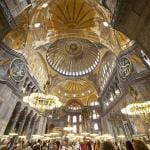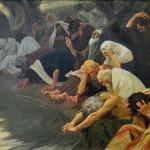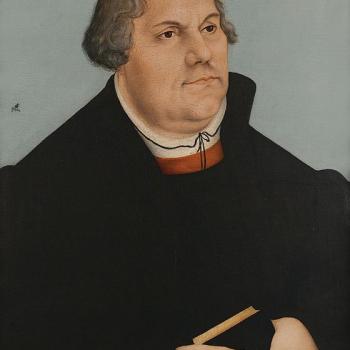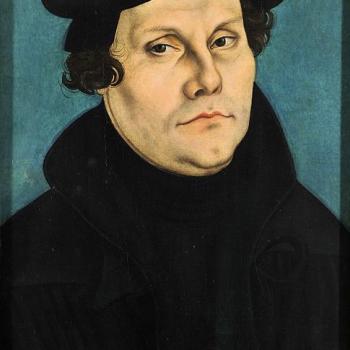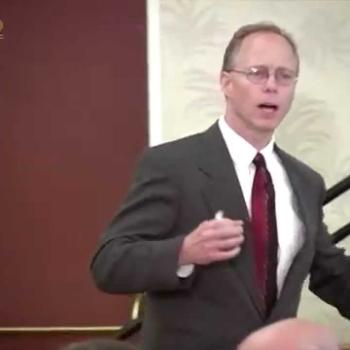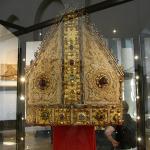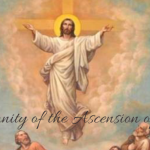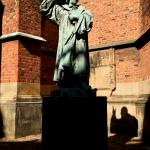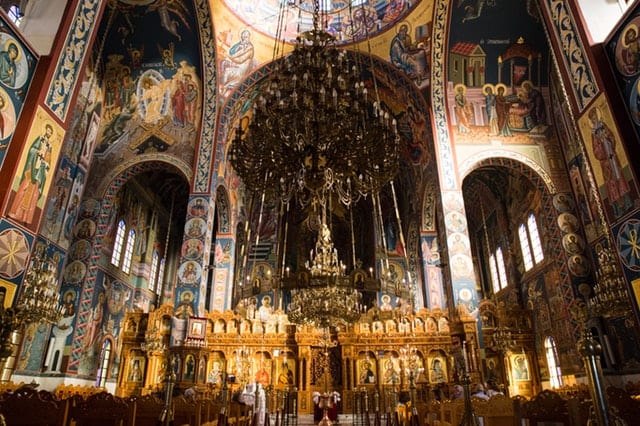
Theologically, the Donatists were rigorists, holding that the Church of the saints must remain ‘holy,’ and that sacraments conferred by traditores were invalid . . . The Church maintained that the unworthiness of the minister did not affect the validity of sacraments, since, as Augustine insisted, their true minister was Christ. The Donatists, on the other hand, went so far as to assert that all those who communicated with traditores were infected, and that, since the Church is one and holy, the Donatists alone formed the Church. Converts to Donatism were rebaptized, a proceeding repeatedly condemned by orthodox synods.
Traditores: The name given in Africa in early times to Christians who surrendered the Scriptures when their possession was forbidden in the persecution of Diocletian. The controversy between Catholics and Donatists which followed the persecution was centred chiefly in the refusal of the Donatists to recognize Caecilian, Bishop of Carthage, on the ground that he had been consecrated by traditores.
2) These groups often claim that the Catholic Church is (in essence) different now than it was before Vatican II. Presumably before that time, the Catholic Church possessed apostolic succession (or at least a measure of “institutional” grace in some fashion), but somehow lost it, and changed in essence (so we are told).
There is first a more moderate group . . . This group holds that, while it is true to say that Orthodoxy is the Church, it is false to conclude from this that those who are not Orthodox cannot possibly belong to the Church. Many people may be members of the Church who are not visibly so; invisible bonds may exist despite an outward separation. The Spirit of God blows where it chooses and, as Irenaeus said, where the Spirit is, there is the Church. We know where the Church is but we cannot be sure where it is not . . .*There is only one Church, but there are many different ways of being related to this one Church . . . there are other Christian communions which possess to a greater or lesser degree a genuine measure of Orthodoxy. All these facts must be taken into account: one cannot simply say that all non-Orthodox are outside the Church, and leave it at that; one cannot treat other Christians as if they stood on the same level as unbelievers.
Such is the view of the more moderate party. But there also exists in the Orthodox Church a more rigorous group, who hold that since Orthodoxy is the Church, anyone who is not Orthodox cannot be a member of the Church . . .*
Of course (so this stricter group add) divine grace may well be active among many non-Orthodox, and if they are sincere in their love of God, then we may be sure that God will have mercy upon them; but they cannot, in their present state, be termed members of the Church . . . (The Orthodox Church, New York: Penguin Books, revised edition, 1993, 308-309)
The changes brought about in the Roman Catholic Church at the Second Vatican Council (1962-5) have made possible a gradual rapprochement between Rome and Orthodoxy at the official level. (Ware, ibid., 315)
6) The very notion of Christ’s Church “going off the rails” is nonsensical and unbiblical, whether it be in the 7th century or the 11th, the 16th, or in 1965. The Church is indefectible (Mt 16:18; 28:20; Jn 14:16-17; 1 Tim 3:15; Ps 89:33-37; Is 55:3; 61:8; Jer 32:40, many other indirect proofs). It simply can’t happen that the Church, which is apostolic and which possesses true Tradition and valid sacraments by its very nature, can somehow lose them. Even the Jews of the Old Covenant, with all their rebellion, idolatry, and wickedness, were not rejected by God, since He had made an eternal covenant with them. Certainly the Church cannot be less secure.
7) The historical argument against anti-ecumenical Orthodoxy runs as follows: Clearly the orthodox Christian Church (wherever else it may have been present) resided at, and was centered at, Rome throughout these many centuries when the East was in frequent schism and weighed down by various heresies (even Christological ones). We can’t reasonably say that it resided in Constantinople, or Alexandria, or Antioch in the years when those sees were formally heretical. Therefore it is without doubt that Rome was the center of the Church: ergo: it possessed apostolic succession and valid sacraments.
8) These considerations also demolish the historically tenuous claim that the Catholic Church “departed” from the Orthodox Church, rather than vice versa (if anyone is to be thought of as having “departed”). Now the more rigorist Orthodox claim that Rome has lost apostolic succession, and the sacraments. But this can’t happen, according to the explicit biblical principle of the indefectibility of the Church. If Rome once possessed the essential marks of the Church (which must be the case up through the ninth century, or else no continuous institutional Church existed and apostolic succession would be broken), it could not have lost them, because God the Holy Spirit — the Guardian and Teacher of the Church — wouldn’t allow that to happen.
9) So to contend that Orthodoxy or a part of Orthodoxy possesses apostolic succession and sacraments, while Catholicism does not is impossible, based on the triple criteria of history, the Bible, and reason. Like the Donatist heresy (which it resembles), it is a self-defeating position. One possible way out of the dilemma would be to deny the concept and/or actuality of indefectibility, but Orthodox believe that about themselves, so this is hardly a viable option. They could deny that Rome ever had apostolic succession, but that would be very difficult, in the face of the contrasting situation in the East and West during those early centuries vis-a-vis orthodox Christian theology.
10) Therefore, the only solution is to adopt a position in which both Catholicism and Orthodoxy possess apostolic succession and valid sacraments (in other words, the ecumenical outlook). Error exists on one or both sides in the instances where they disagree, but these are not sufficient enough to annihilate apostolic succession, since the principle of indefectibility will not allow it.
11) To assert an ecclesiological and historical position whereby the Catholic Church headed by the pope in Rome was the standard and guardian of orthodoxy for 1000 years, but then passed the “apostolic ball” over to Constantinople (and thereafter lost it) is an absurd position to take — just as ludicrous as the anti-ecumenical Protestant position which holds that the Catholic Church forsook Christianity right after the apostolic age, or with Constantine in the 4th century, or with the advent of the “reformers” Luther and Calvin in the 16th century (who were actually revolutionaries — overthrowing much of unbroken Church Tradition).
Catholicism and Western Christianity hasn’t changed in essence at all, while Eastern Christianity and Orthodoxy went through all sorts of heresies, split from the West again and again, and finally split off altogether. Therefore, the Orthodox cannot argue that they possess apostolic succession and the sacraments while Catholicism does not, according to the biblical principle of indefectibility.
***
Related Reading
Filioque: Catholic-Orthodox Dialogue (William Klimon) [July 1997]
Sack of Constantinople (1204) & Unknown Byzantine Atrocities [1998]
Contraception: Early Church Teaching (William Klimon) [1998]
Divorce: Early Church Teaching [Oct. 1998]
“Western” View of the Holy Trinity, Monarchia, Procession, Etc. (vs. David Waltz and Drake Shelton) [3-5-12]
Orthodoxy and Catholicism: A Comparison (book: July 2004 / rev. Sep. 2014, 383p) [third revised edition includes much material from Byzantine Catholic Fr. Deacon Daniel Dozier]
Orthodoxy & Contraception: Continuity or Compromise? [2015]
***


